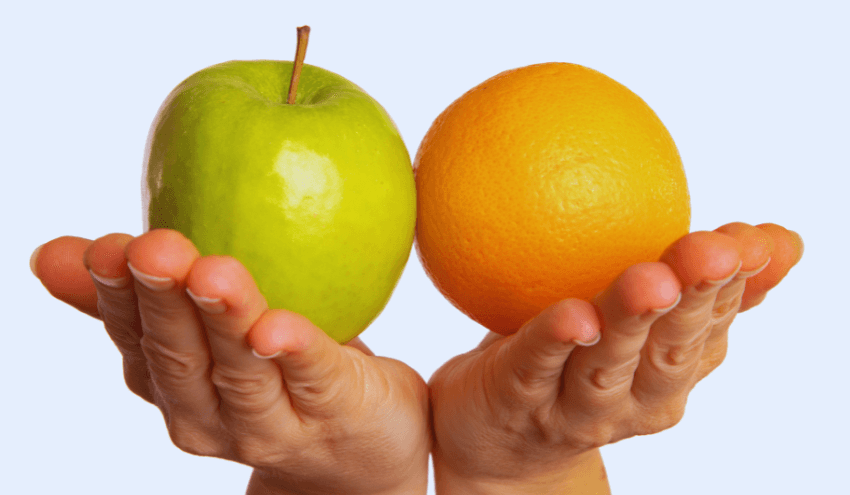In today’s dynamic financial landscape, various banking options are available to help you grow your money and achieve your financial goals. However, knowing and choosing the best way to reach those goals can often be a chore. You may have heard of a high yield savings (HYS) account or even a money market account (MMA). These are two of the more popular choices available for those looking to save and grow their money. But what are they? How do the account types differ? Is one better than the other? TAB Bank has got you covered. Keep reading as we dive into the specifics of each account, highlighting their unique features, pros and cons, and other details to help you decide which one aligns better with your financial needs.
What is a High Yield Savings Account?
A High Yield Savings account is a type of savings account that typically provides a much higher interest rate than traditional savings accounts. High yield savings accounts are frequently offered by online or digital banks, though they can sometimes be found at credit unions and even brick-and-mortar bank chains. One of the main attractions of a high yield savings account is the higher interest rate, which allows for greater returns on the money held in the account. This is what earns its “high yield” name.
To better understand how a high yield savings account works, let’s consider the following scenario: You have $10,000 deposited in a regular savings account with an average 0.46% APY (as of 2/20/24). After a year, you would have earned $46 in interest. Not a lot considering how much you’ve kept in the account. Now, let’s say you have the same amount in a high yield savings account. In February 2024, the APY for TAB Bank’s HYS account exceeded 5.20% (click here to view current rates for TAB’s HYS account). With a 5.20% APY, after a year, you would have earned $520 in interest from your $10,000 starting balance. Over 11x what the average savings account would earn. This example clearly illustrates the significant difference that a high yield savings account can make in growing your savings.
Key Details
- Higher Interest Rates: High yield savings accounts offer interest rates that are often many times higher than traditional savings accounts.
- Low or No Fees: Many high yield savings accounts come with minimal fees (if any), allowing you to maximize your earnings.
- FDIC Insured: Just like regular savings accounts, high yield savings accounts at member banks such as TAB are covered by FDIC insurance. The standard deposit insurance amount is $250,000 per account holder, per account category, per institution (click here to learn more about FDIC deposit insurance).
Advantages and Disadvantages of a High Yield Savings Account
Advantages:
The first and most obvious advantage of a high yield savings account is its interest rate. Higher interest rates mean your money does more for you while in the savings account. In fact, in some cases, it is doing nearly ten times as much work as a normal savings account. High yield savings accounts also tend to maintain competitive rates over time so you can benefit from shopping around and monitoring the best offers without having to constantly open and close accounts.
Second, high yield savings accounts can be a safe and secure way to store large sums of cash. Selecting a bank with FDIC insurance provides added peace of mind. It’s nice to know your money is helping you reach your financial goals, but it’s even better knowing you have some protection for your funds.
Finally, the ease of access. While a high yield savings account may have extraordinary interest rates, it has the same ease of access as any other savings account. Most banks will have online and mobile banking tools to manage your accounts, and ways to conveniently transfer funds via ACH or wire, so it is easy to access your money when you need to.
Disadvantages:
A disadvantage of the high yield savings account is that, like other savings account rates, the interest rates are not set in stone and are subject to change over time. This means rates may increase or decrease based on economic circumstances, which will determine how much you are able to earn. Still, while the interest rate varies, high yield savings account rates will generally always be higher than the interest rate on a standard savings account.
A second disadvantage is the potential for limits on the number of transactions that can be made each month. While the Federal Reserve removed the monthly transaction limit for savings account withdrawals in 2020, some banks may continue to restrict the number of withdrawals an account holder can make during a set period of time. If you are planning to frequently withdraw funds from your high yield savings account, make sure you understand your bank’s policy on savings account withdrawals.
What is a Money Market Account?
A money market account is an account type that combines elements of both savings and checking accounts. Money market accounts are typically offered by depository institutions like credit unions and traditional banks. First, they commonly offer interest rates comparable to or slightly better than an average savings account. In October of 2022, average savings accounts had an APY of 0.21%, while most money market accounts were around 0.23%. Money market accounts also share some characteristics with checking accounts. Namely, upon opening the account you may be provided (or able to order) a checkbook and will receive an ATM card for transactions. This allows money market accounts to provide more flexibility in terms of check-writing privileges and ATM access, making them an attractive option for those who require more liquidity.
A money market account attempts to provide a best-of-both-worlds scenario in which you can have your cake and eat it too. Or in this case, save your money with earned interest, while still having quick access to cash.
Key Details
- Earn Interest: While the interest rates offered by money market accounts may be lower than high yield savings accounts, they still help you earn over time.
- Check-Writing Privileges: Money market accounts often allow a limited number of check-writing transactions per month, providing you with added convenience and accessibility.
- FDIC Insured: Similar to high yield savings accounts, money market accounts at member banks can be FDIC insured, providing added security for your funds.
Advantages and Disadvantages of a Money Market Account
Advantages:
The first advantage of a money market account is its liquidity. A money market account gives you more options to access your money than a traditional or high yield savings account would.
This leads directly to the second advantage of a money market account. The ability to write checks and utilize a debit card. Individuals who don’t want to open or maintain both a savings and checking account may find that money market accounts are a preferable hybrid option.
Finally, money market accounts can be a safe option for anyone to keep their money in. It bears repeating that money market accounts can be FDIC insured and will protect you and your money in the case of bank failure, up to the specified limit. If your financial institution is FDIC insured, you can save your money with confidence.
Disadvantages:
The first disadvantage of a money market account is the minimum monthly balance. Compared to most savings accounts, money market accounts typically require you to have a higher minimum balance. This means if you fall below the balance for too long, the account may close or lose some of its benefits. If you aren’t able to keep up with the minimums you may find this account is not a sustainable option for you.
The second disadvantage is the transaction limitation. Despite having the ability to write checks and use a debit card you may still be limited in the number of transactions you can make from the account each month. You should be sure to verify any transaction limits before opening a money market account to ensure it meets your needs.
Finally, money market accounts are subject to variable interest rates that are often lower than a high yield savings would earn. They do remain competitive with standard savings accounts, though the rate fluctuation may mean you end up earning less money one year than the next. As always, it depends on the market.
High Yield Savings Account vs. Money Market Account
Now that we have explored the features, as well as the advantages and disadvantages of both high yield savings accounts and money market accounts, it’s time to compare the two accounts side by side. Let’s look at some of the key points of each account including interest rates, access to money, and minimum balance requirements.
Interest Rates: First, looking at interest rates, it is easy to see how most high yield savings accounts will outperform a money market account. High yield savings accounts frequently see almost ten times the return that a typical savings account or money market account, depending on the interest rate. A high yield savings account in 2023 will likely offer a 4% APY or higher while a money market account will typically be closer to a standard interest rate of less than 1%.
It is also important to note that both high yield savings accounts and money market accounts have a variable interest rate. That means the rates may change at any time. Since high yield savings accounts have higher APYs generally, they may be more volatile depending on market fluctuations; you could sign on at 5% APY, have it dip to 4.25% APY, and have it come back to 5.10% APY. Similar fluctuations are possible in money market accounts as well, though the relative changes may be smaller due to the lower interest rate.
Access to Funds: The next thing to consider is access to your money. On that front, money market accounts come out ahead. While high yield savings accounts might feature easy access through online banking and quick intra-bank transfers, they can’t be used for direct transactions with a check or ATM. With money market accounts, you are often provided a checkbook and a debit card to access your funds whenever you need them, making the money more liquid.
Monthly Balance Requirements: Finally, let’s look at the monthly balance requirements. Money market accounts often require a minimum monthly balance that needs to be maintained, while high yield savings usually do not. This makes high yield savings accounts more manageable from the get-go, since you don’t risk the chance of dipping below a threshold and having the account closed or charged extra fees. Money market accounts generally need a maintenance balance at all times to avoid fees.
It is important to note, however, that this may not always be the case. Some banks may operate differently and offer no monthly minimum balance on either account or may require one on both. As always do your research and understand the fine print before opening any new account.
Which Account Should You Choose?
The decision between a high yield savings account and a money market account depends on your financial goals and the withdrawal policies of your bank.
If you are saving up for a big family vacation or other large expense, a high yield savings account will help you reach your goal faster than a money market account, due to the higher interest rates available. On the other hand, if you are looking for more accessible funds with a higher interest rate than a regular savings account, money market accounts offer direct debit card and checkbook access, which may be appealing. Choosing the correct account for you is entirely dependent on your financial goals and what fits your situation.
Both high yield savings accounts and money market accounts offer attractive benefits for growing your savings. While high yield savings accounts provide higher interest rates and are ideal for saving large amounts of money, money market accounts offer better liquidity and check-writing privileges. Your choice should align with your specific financial needs.
Save More with TAB
If you are looking to optimize your savings in a low-risk way, opt for TAB Bank’s saving solutions. We offer both money market accounts and high yield savings accounts with competitive interest rates, FDIC insurance, and low or no opening deposit requirements. Whichever account you choose, remember that responsible financial management and consistent savings habits are key to achieving your financial objectives.



